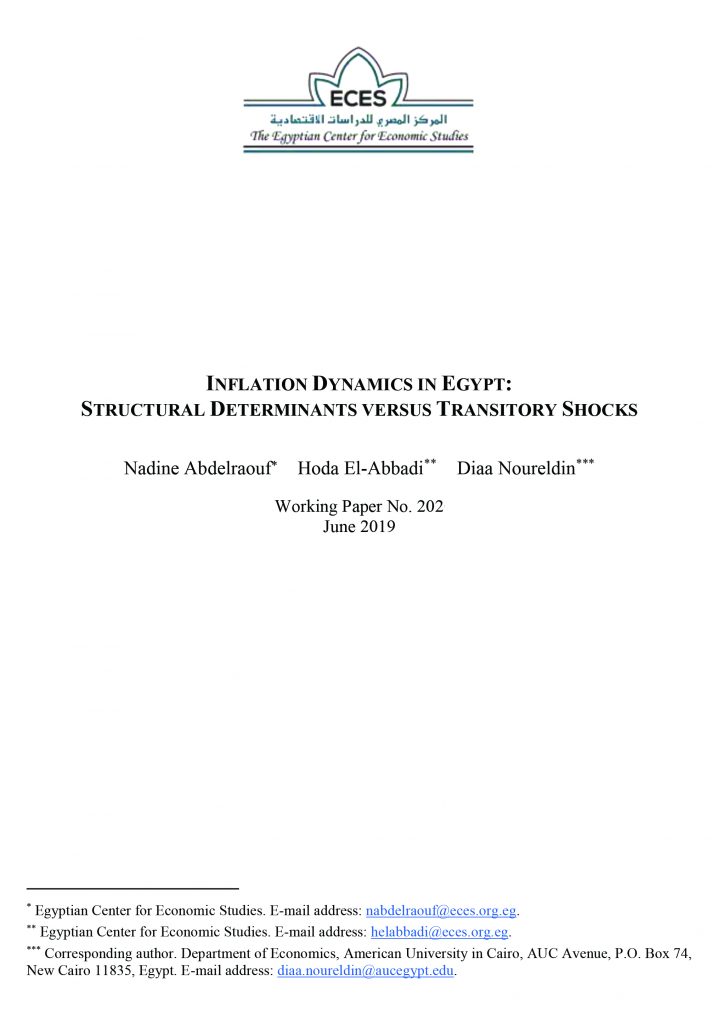This paper studies recent inflation dynamics in Egypt with the objective of assessing whether there are structural factors behind the trend rise in inflation since 2003. Specifically, we uncover the role of two significant determinants of long-run inflation dynamics, namely excessive monetary growth and a rise in the intensity of relative price variability. These twvariables are shown to play a key role in explaining inflation developments over the period January 2000 to October 2018 after controlling for the impact of exchange rate devaluations, energy price liberalization, adverse supply-side shocks and movements in international commodity prices. While the latter group of variables was influential in triggering inflation
waves over the short to medium term, our empirical results show that excessive monetary growth and increased variability in relative prices are the main drivers behind the trend rise in inflation. The policy implications of our findings point to the immediate need to curb excess money growth in the economy, and also the pertinence of treating the issue of price liberalization using a holistic long-run plan as opposed to the historically-adopted piecemeal approach.

Inflation Dynamics in Egypt: Structural Determinants versus Transitory Shocks
20-06-2019
Author(s): Nadine Abdelraouf, Hoda El-Abbadi, Diaa Noureldin
Publication Number: ECES-WP202-E
